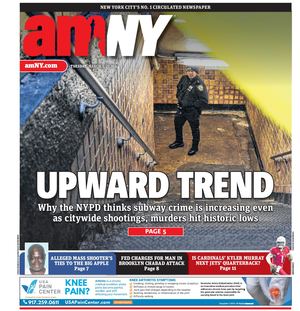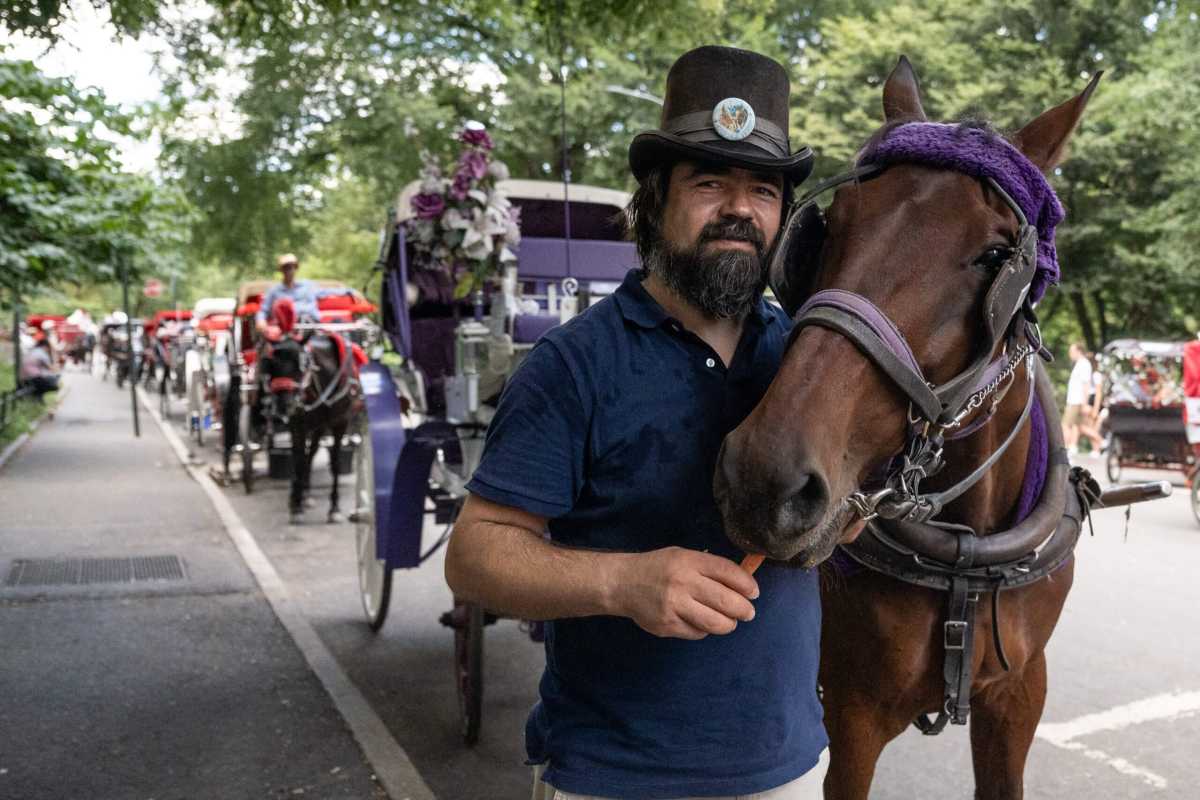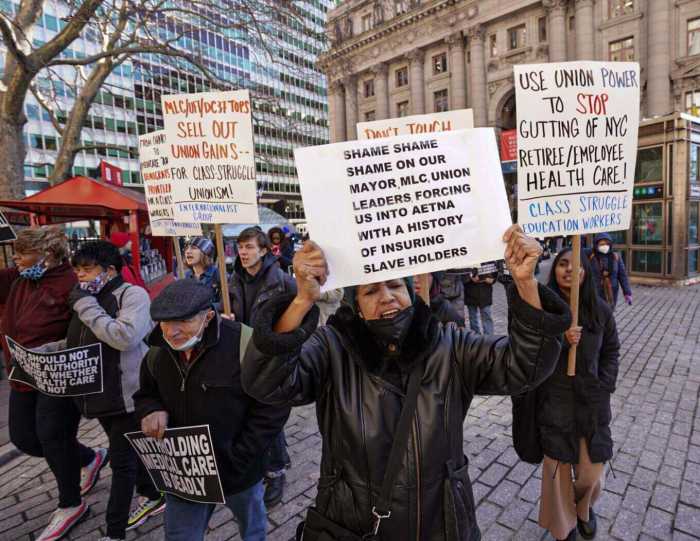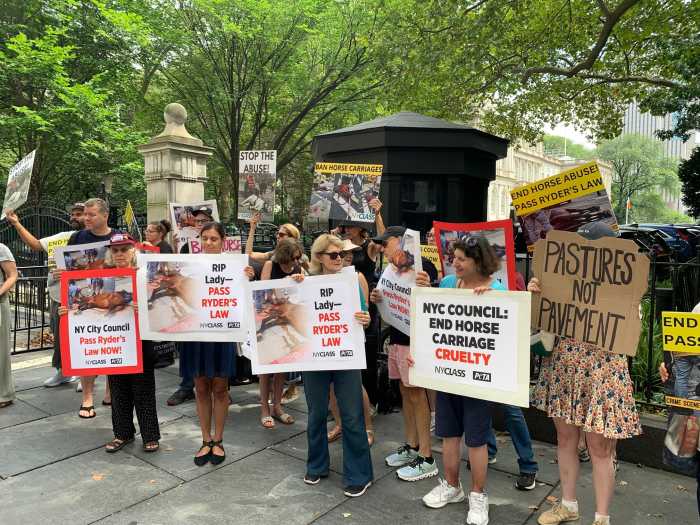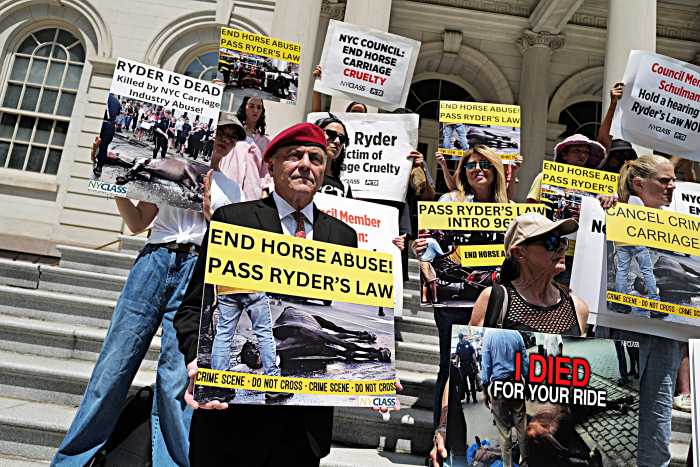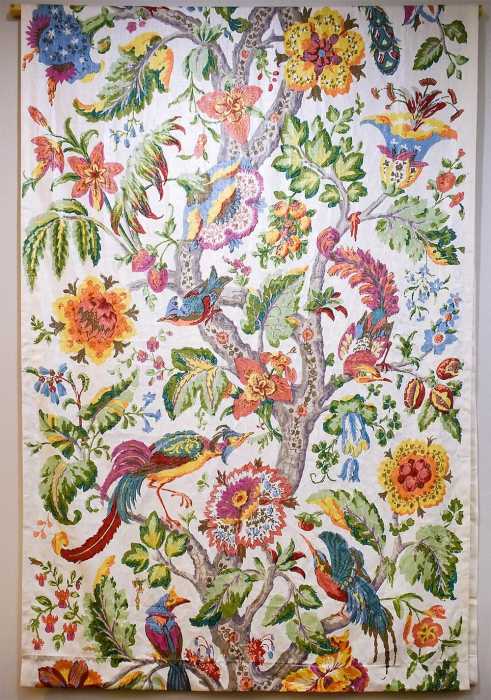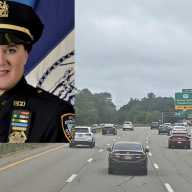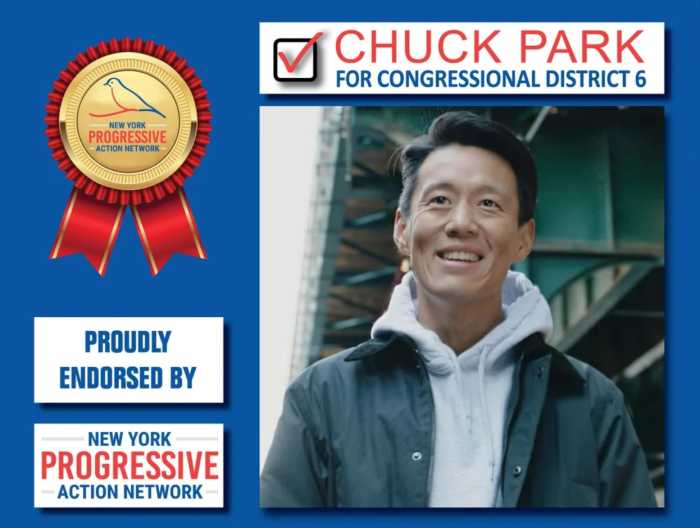New Yorkers aren’t horsing around. A new poll released on Monday shows that an overwhelming majority of NYC voters want to end the horse-drawn carriage industry in the Big Apple. But that survey follows one that revealed nearly opposite results last week.
The Zogby Analytics poll released on Oct. 20, commissioned by NYCLASS, a group against the use of horse-drawn carriages in NYC, showed that 78% of city voters support Ryder’s Law, a city council bill called Intro. 967 that would wind down and end the controversial industry.
Representatives from NYCLASS stated that the poll surveyed 803 likely NYC voters from October 10 to 13 and had a margin of error of plus or minus 3.5%.
Delving deeper into the results, 85% of Zohran Mamdani supporters and 83% of Andrew Cuomo supporters want the city council to pass Ryder’s Law. Eighty-four percent of Curtis Sliwa supporters also support it. Sliwa is a staunch advocate for ending the horse-drawn carriage industry and has appeared at several protests against it this year.
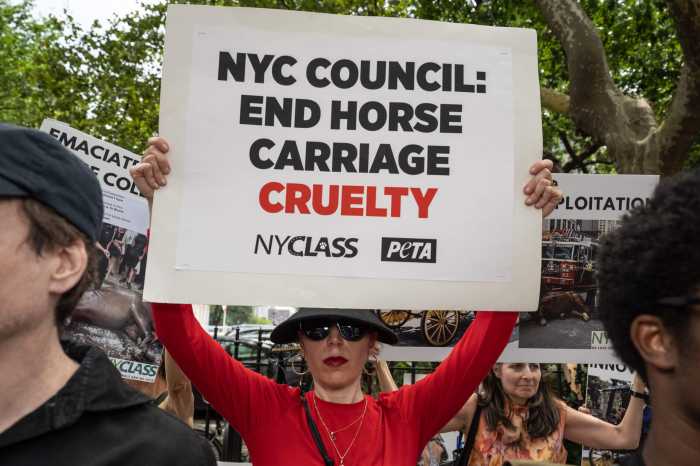
Edita Birnkrant, executive director of NYCLASS, acknowledged the public and political support in the poll. She called on Council Speaker Adrienne Adams to move the bill through the legislative process.
“This is the strongest public mandate we’ve ever seen for Ryder’s Law,” she said. “That’s a rare consensus across the political spectrum. More than two-thirds of voters want Speaker Adrienne Adams and the city council to finally move this bill forward. The public couldn’t be clearer. New Yorkers want a safer, more humane city for people and horses alike.”
Many people surveyed also showed concerns about rehoming horses safely, preventing crashes, and guaranteeing stable, higher-paying jobs for drivers.
Local 100 poll shows different results
The Transport Workers Union (TWU) Local 100, which represents approximately 200 carriage drivers in the city, has long opposed a ban on the industry. In fact, the union conducted its own Slingshot Strategies poll from Sept. 29 to Oct. 5, surveying 738 New Yorkers who visit Central Park at least once a month. The poll found that 59% of park-goers support horse-drawn carriages in the park.
More than half (60%) said carriage rides are “part of a timeless tradition in Central Park that should be preserved,” according to the survey, which has a margin of error of plus or minus 4.4 percentage points.
“There is resounding public support for keeping the carriage horses in Central Park,” TWU Local 100 President John Samuelsen said. “This poll sends a clear message that New Yorkers aren’t buying the politicized anti-horse rhetoric. The carriage horses are part of the soul of Central Park, a living, breathing tradition that brings beauty, history and heart to this city. People don’t want that erased. They want it protected.”
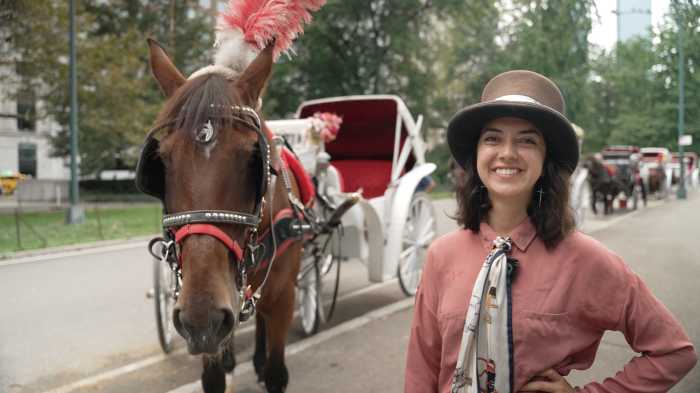
Samuelson explained that horses that are no longer wanted by their owners find a home in the Central Park carriage-horse industry. Horses used in the carriage industry are better cared for, despite claims by animal rights activists and union representatives.
“Central Park horses are humanely treated,” he said. “I think the greatest attestation to the humane treatment to the horses are the veterinarians. They routinely attest that the horses are treated very well. The NYC health department attests that the horses are treated very well.”
Polls, politics and horses caught in the middle
This strong showing in the polls follows a year marked by increased public scrutiny and several high-profile incidents within the horse-drawn carriage industry, including multiple horse deaths and a criminal case that positioned public opinion against the practice.
The bill at the center of the controversy is named after Ryder, a horse who collapsed in Hell’s Kitchen in 2022 during a heatwave, sparking outrage from animal advocates. Ryder later died of cancer that October.
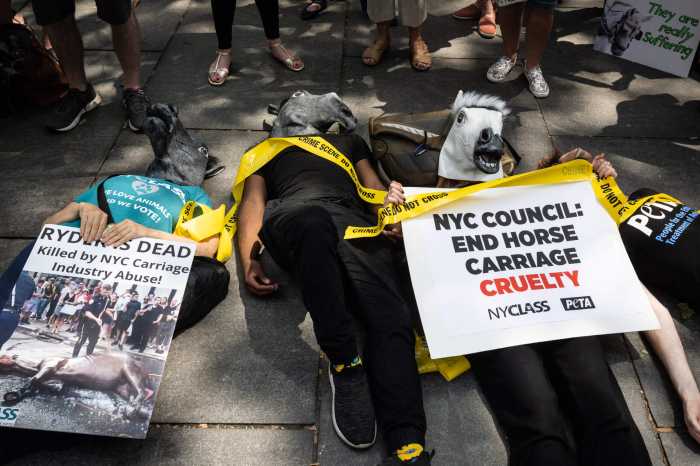
Just this year, another horse, Lady, collapsed and died from an aortic rupture near Times Square.
In a historic move, the Central Park Conservancy, stewards of the city park, took a side and called on city officials to end horse-drawn carriages in the park.
These events have brought renewed urgency to the debate, prompting various advocacy groups and elected officials to push for – or oppose – legislative action.
NYC Mayor Eric Adams endorsed Ryder’s Law last month, calling on the NYC Council to turn the bill into law. If signed into law, the measure would phase out the horse-drawn carriage industry by halting the issuance of new licenses and banning carriage operations starting June 1, 2026.
Margaret Turner, a spokesperson for Adams, said the mayor stands with the “overwhelming majority” of New Yorkers who support the ban on horse carriages. She added that the NYCLASS poll validates that the ban is “the right and humane” path forward.
“Dangerous incidents in recent years have shown New Yorkers that these carriages aren’t compatible with a modern city, endangering Central Park visitors, our city’s drivers, and the horses themselves,” Turner said. “Every mayoral candidate has endorsed the mayor’s ban, and it is high time the city council step up and join New York City in stopping this abuse, and keeping our parks and streets safe and clean.”
Meanwhile, a spokesperson for the city council confirmed that Ryder’s Law is moving through the legislative process.
“The council appreciates that this is a difficult and emotional issue, which has persisted for decades,” the spokesperson said. “Intro. 967 has been referred to the Committee on Health and continues to go through the legislative process, which is deliberative and allows for thorough input from all stakeholders.”
